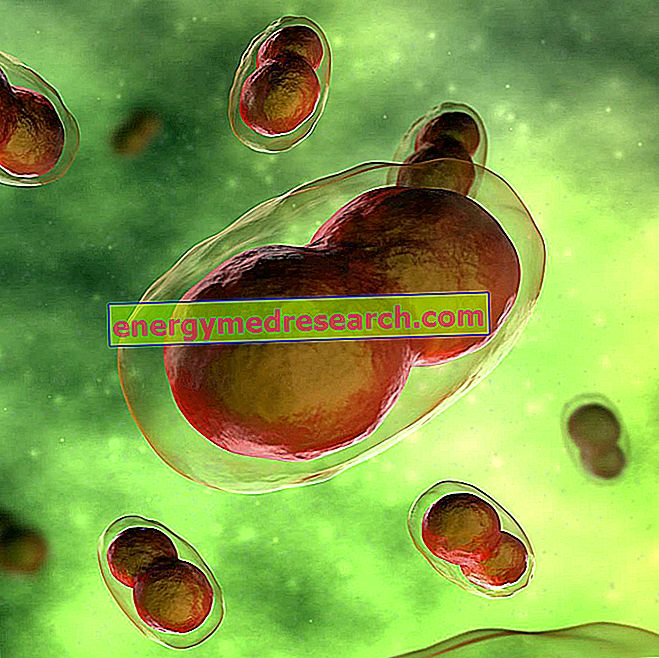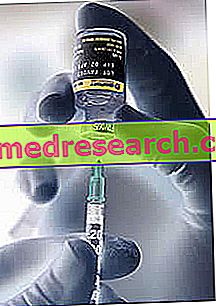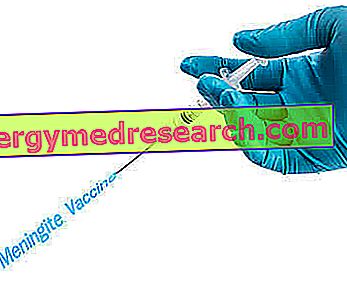Generality The " meningococcal B vaccine " is a non-compulsory vaccination that guarantees immunity against meningitis caused by the homonymous bacterium (meningococcus B). Made with at least 2 dosages and through intramuscular administration, the meningococcal B vaccine is an effective and well tolerated practice; in fact, it is rare that it fails or is responsible for side effects
Category vaccination
In Italy, due to mass vaccination campaigns , some diseases - such as diphtheria or poliomyelitis - have practically disappeared. However, we continue to vaccinate against some of these diseases, as they are still present in many countries and could be reintroduced into the national territory, affecting people who are not actively immunized
In Italy, a series of vaccinations are considered mandatory and imposed by the State to avoid mass epidemics. In particular, for all newborns , vaccination against diphtheria , tetanus , poliomyelitis and viral hepatitis B is planned. What changes since 2017 With the decree-law on the prevention of vaccination for minors from zero to 16 years, the mandatory and free vaccinations pass from four to twelve ; in addition to those already seen anti-poliomelitica; anti-diphtheria; anti-tetanus; anti-hepatitis B; the mandatory vaccination is added for whooping cough meningitis (Haemophilus influenzae
Vaccination (or immunization ) is a means by which it is possible to prevent a serious disease through a previous exposure to the suitably treated infectious agent - so as to render it harmless - or to a series of components thereof. In other words, this practice provides the immune system with the opportunity to gain the experience necessary to evoke a protective response against a given pathogenic microorganism, with minimal risks to the health and life of the individual
An attenuated vaccine involves the use of a live infectious agent whose virulence has been attenuated, so much so that it is no longer pathogenic for humans. These vaccines are generally more powerful in inducing protective immunity than inactivated vaccines. In fact, an attenuated infectious agent is still able to replicate, even if within certain limits, in order to mimic a real infection
An inactivated vaccine involves the use of complete viral or bacterial particles, but chemically treated (for example with formalin or chelating agents, such as ethylene oxide) or physically (with irradiation or heat), so that they lose any capacity for replication or to cause illness. Compared to attenuated vaccines, they have the main advantages, stability and safety, but they usually induce a lower immune response and to ensure immunization more doses of vaccine should be given
Variolization consisted of inoculating or making a healthy person inhale material from pustules of smallpox patients. This method was the only weapon to fight the disease for years and significantly reduced the number of deaths. Already in use in China in the tenth century, the practice arrived in Europe thanks to the work of the aristocratic Lady Mary Wotley Montagu, wife of the English ambassador in Istanbul
In addition to individual protection measures and carrier environmental control, Japanese encephalitis can be prevented by vaccination. The Ixiaro vaccine , already approved by the FDA (Food and Drug Administration) in the USA and authorized by the EMEA (European Medicines Agency), is administered intramuscularly in the deltoid region (upper arm), in 2 doses, the second of which is inoculated 4 weeks after the first one
Generality? In 1999 it was discovered that a vaccine was able to lead to a reduction of β-amyloid accumulation in transgenic mice that developed an excess of the precursor of this protein, APP, which was discussed in the previous chapters. Still in animal models, it has been shown that both the administration of vaccines and passive immunotherapy (a term used when specific activated effector immune cells are directly infused into the patient, and are not induced or expanded in the body), led to a memory improvement in association with amyloid clearance (clearance, in pharmacology, indicates the
Generality The meningitis vaccine is a preventive measure , useful for reducing the risk of developing the main invasive bacterial forms of the disease. Meningitis is an inflammation of the membranes lining the brain and spinal cord; this condition depends mainly on infections, but, in rare cases, it can also be caused by irritative processes and some diseases
Generality Vaccines in children are a fundamental and effective means of preventing the onset of serious infectious diseases, the complications of which can be very serious and sometimes even fatal. Childhood vaccinations are therefore essential to protect the pediatric population from the development of dangerous infectious diseases, but not only











